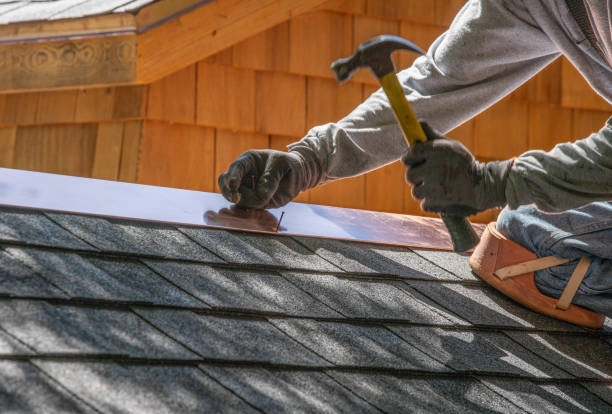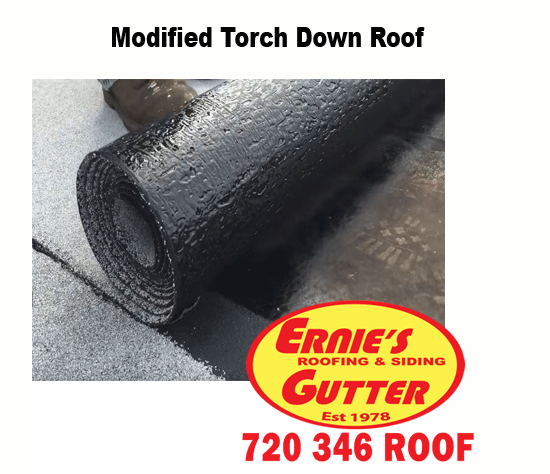Your roof is more than just a structural component of your home or business; it’s a critical barrier that protects you, your loved ones, and your possessions from the elements. Ignoring minor issues can lead to significant, costly problems, emphasizing the importance of timely and effective roof repair. Whether it’s residential roofing or commercial roofing, maintaining the integrity of your roofing system is essential. Proactive repairs can extend the life of your roof, improve energy efficiency, and prevent water damage inside your property.
This comprehensive guide is designed to equip you with the knowledge you need to understand the nuances of roof repair, replacement, and maintenance. By the end, you’ll be familiar with the different types of roofing materials, common problems that necessitate roofing repair, and how to select the right roofing contractor. Whether you’re facing immediate repair needs or planning future maintenance, this guide will help you make informed decisions to protect your investment.
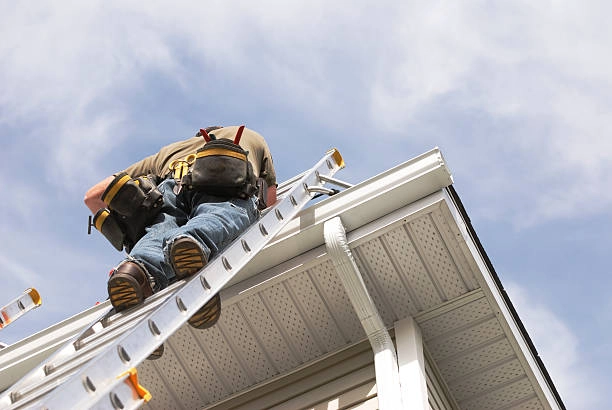
Understanding Your Roofing System
Types of Roofing Materials
- Asphalt Shingles: The most common residential roofing material, known for its cost-effectiveness and versatility.
- Metal Roofing: Durable, long-lasting, and available in various styles, metal roofs are suitable for both residential and commercial roofing.
- Tile Roofing: Clay and concrete tiles offer a unique aesthetic, durability, and energy efficiency, though they are heavier and more expensive.
- Flat Roofing Systems: Often used in commercial roofing, these include built-up roofs (BUR), modified bitumen, and rubber membrane roofs (EPDM).
Common Roofing Problems and Their Causes
- Leaks: Typically caused by compromised shingles, flashing, or underlayment, making prompt roofing repair essential.
- Missing or Damaged Shingles: High winds, hail, and wear and tear can lead to missing shingles, necessitating immediate attention from roofers.
- Wear and Tear: Over time, exposure to elements can degrade your roofing materials, highlighting the need for regular inspection and maintenance.
How to Conduct a Basic Roof Inspection
- Visual Inspection from the Ground: Look for signs of sagging, damaged or missing shingles, and damaged flashing.
- Gutter Check: Ensure gutters and downspouts are securely attached and debris-free to prevent water damage.
- Interior Inspection: Check your attic for water stains, mold, or daylight coming through the roof, indicating potential leaks.
By understanding the basics of your roofing system, you can better communicate with roofing contractors and ensure that your roof repair or replacement needs are adequately addressed. Whether it’s a minor repair or a full roof replacement, choosing the right roofing company is crucial for ensuring the longevity and performance of your roofing system.
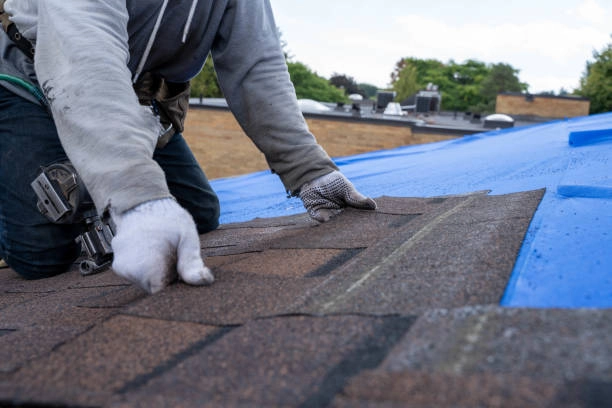
Signs You Need Roof Repair
Visible Damage to Shingles or Tiles
Identifying visible damage, such as cracked, warped, or missing shingles or tiles, clearly indicates that your roof requires attention. These issues can compromise the roof’s ability to protect your home or business from water infiltration.
Water Stains on Ceilings or Walls
Water stains on your ceilings or walls are often indicators of a leaking roof. It’s essential to address these leaks promptly to prevent structural damage and the potential for mold growth inside your property.
Mold or Moss Growth on the Roof Surface
The presence of mold or moss on your roof can signal trapped moisture, which can deteriorate roofing materials over time. Removing mold or moss and repairing the underlying issues can extend the life of your roofing system.
Increased Energy Bills
An unexpected increase in energy bills may suggest insulation problems caused by roofing issues. Proper roof repair can restore your home’s or commercial building’s energy efficiency, reducing heating and cooling costs.
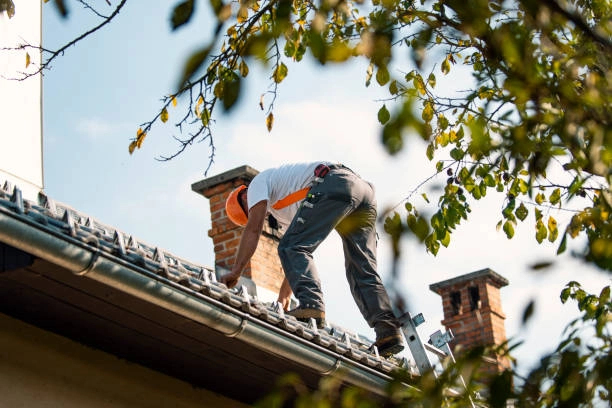
DIY Roof Repair vs. Professional Services
When to Consider DIY Repairs (and What You Can Realistically Handle)
- Minor Repairs: Simple tasks such as replacing a few missing shingles or clearing gutters can often be handled without professional help.
- Safety and Skill Level: Only attempt DIY repairs if you have the necessary skills and can safely navigate your roof.
Benefits of Hiring a Professional Roofing Contractor
- Expertise and Experience: Professional roofers have the expertise to diagnose and repair roofing issues accurately, ensuring high-quality workmanship.
- Safety: Roofing contractors are trained to work safely on roofs, reducing the risk of injury.
- Warranty and Guarantees: Many roofing companies offer warranties on their work, providing peace of mind and protection for your investment.
How to Decide the Best Route for Your Situation
- Assess the Damage: If the damage is extensive or you are unsure of the severity, it’s best to consult a professional roofing company.
- Consider Your Skills and Safety: DIY may be a viable option if you’re comfortable with the scope of work and can safely perform the repairs. However, for complex issues or if safety is a concern, hiring a professional roofer is advisable.
- Long-Term Costs: Sometimes, DIY repairs can cost more in the long run if not done correctly. Professional repairs can be more cost-effective over time, especially for significant issues.
Choosing between DIY roof repair and hiring a professional roofing company should be based on the extent of the damage, your skill level, and safety considerations. Whether it’s a minor fix or a major repair, ensuring the job is done right is crucial for maintaining the integrity and longevity of your roofing system.
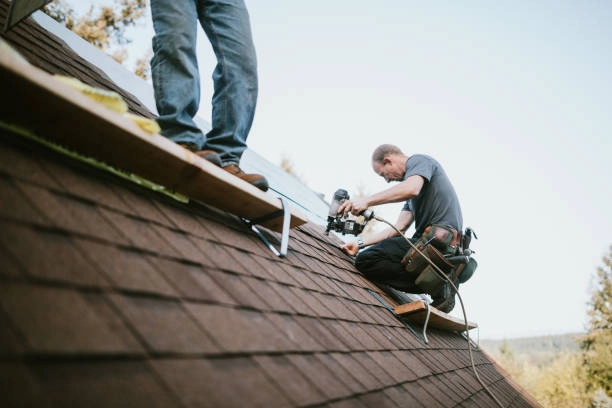
Choosing a Roofing Contractor
Qualifications and Certifications to Look For
When selecting a roofing contractor, prioritize those with proven qualifications and certifications. Look for a contractor licensed in your area with certifications from leading roofing manufacturers. These credentials indicate a level of expertise and a commitment to quality workmanship in the roofing industry.
Researching and Selecting a Reputable Contractor
- Read Reviews: Online reviews and testimonials can provide insight into a roofing company’s reliability and quality of service.
- Ask for References: A reputable roofing contractor should be able to provide references from past clients.
- Check for Insurance: Ensure the contractor has liability insurance and workers’ compensation to protect you in case of accidents.
Understanding Quotes and Contracts
A detailed quote should outline the scope of the roof repair, the materials to be used, and the estimated cost. Review contracts carefully to understand the warranty and what it covers. Don’t hesitate to ask for clarification on any part of the quote or contract you don’t understand.
Questions to Ask Potential Roofing Contractors
- “Can you provide a detailed breakdown of the costs?”
- “What is the timeline for the repair?”
- “Do you offer a warranty on your work?”
- “How do you handle unforeseen issues that may arise during the repair?”

Preparing for Roof Repair
What to Expect During the Repair Process
Roof repair, whether it involves fixing leaks, replacing shingles, or addressing insulation issues, typically begins with an inspection. The roofing contractor will assess the extent of the damage and determine the necessary repairs. Expect some noise and disruption during the repair process.
How to Prepare Your Home and Property
- Secure Loose Items: Vibrations from roof repair work can cause items in your home to shift. Secure or remove loose items from shelves and walls.
- Protect Your Property: Cover landscaping and outdoor furniture to protect them from debris.
- Provide Access: Ensure the roofing team has easy access to the work area.
Safety Considerations for You and Your Family
- Keep Children and Pets Away: For their safety, keep children and pets inside or away from the work area.
- Be Aware of Work Zones: Be mindful of the areas where work is being done to avoid accidents.
Whether you’re dealing with residential roofing or commercial roofing, understanding the repair process and preparing accordingly can help ensure a smooth and efficient project. Choosing the right roofing contractor is crucial, as is understanding the scope of work and preparing your home for the repair. With the right approach, your roof repair can be completed effectively, ensuring the longevity and durability of your roofing system.
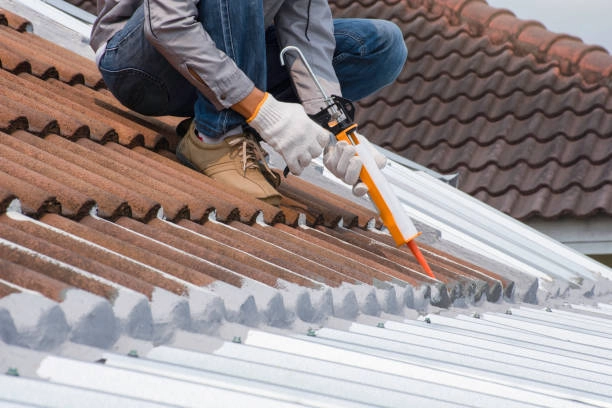
The Roof Repair Process
Initial Inspection and Assessment
The roof repair process starts with a thorough inspection by a professional roofing contractor. This step is crucial for identifying all issues, from leaks to damaged shingles or tiles. The assessment should cover both the exterior elements and the interior parts of the roofing system, ensuring a comprehensive evaluation.
Repairing Leaks and Replacing Damaged Shingles or Tiles
Once the assessment is complete, the focus shifts to addressing the identified issues. Repairing leaks often involves sealing compromised areas and replacing underlayment, while damaged shingles or tiles need to be carefully removed and replaced to restore the roof’s integrity.
Structural Repairs (if necessary)
In some cases, the damage may extend to the roof’s structure. Structural repairs can include:
- Reinforcing weakened beams or trusses.
- Addressing sagging sections.
- Ensuring the roof can support its weight and withstand external pressures.
Final Inspection and Cleanup
After repairs are completed, a final inspection is conducted to ensure the work meets quality standards and addresses all issues. Cleanup involves:
- Removing any debris.
- Ensuring the property is left in good condition.
- Make sure the roof’s functionality and appearance are restored.
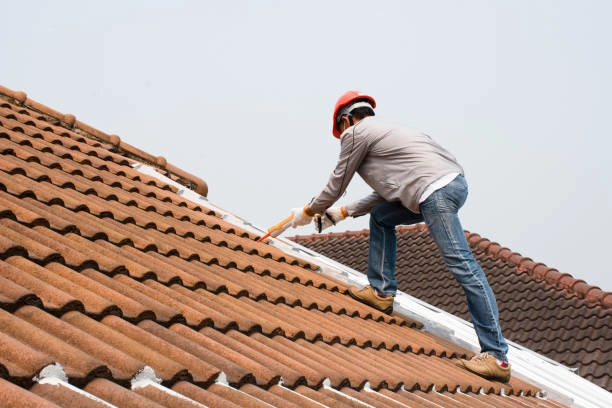
Roof Maintenance and Prevention
Regular Maintenance Tips to Extend the Life of Your Roof
- Regular Cleaning: To prevent water buildup, keep gutters and downspouts clear of debris.
- Trim Overhanging Branches: Reduce the risk of damage from falling limbs or accumulated leaves.
- Inspect After Severe Weather: Check for and address any damage after storms, high winds, or heavy snowfall.
Preventative Measures to Avoid Common Roof Problems
- Proper Ventilation: Ensure your attic is well-ventilated to prevent moisture buildup that can lead to mold and weaken the roofing structure.
- Sealant and Flashing Checks: Regularly inspect and maintain sealant and flashing around chimneys, vents, and skylights to prevent leaks.
When to Schedule Professional Inspections
It’s advisable to schedule professional roofing inspections at least once a year or after any significant weather event. A professional roofing contractor can spot potential issues that homeowners may miss, offering an opportunity for preventative maintenance before problems escalate.
Maintaining your roof through regular care and preventive measures can significantly extend its lifespan, ensuring it continues to protect your home or business effectively. Staying proactive with maintenance and addressing issues promptly with the help of skilled roofers can save you time, money, and stress in the long run.
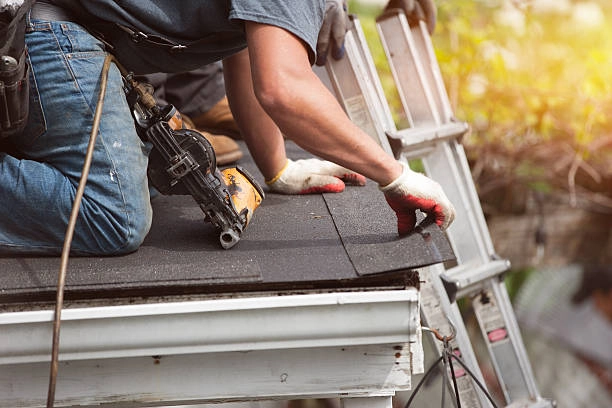
Understanding Roof Repair Costs
Factors That Influence the Cost of Roof Repair
Several factors can affect the cost of roof repair, including:
- Type of Roofing Material: Asphalt shingles, metal roofing, tile, and flat roofing systems each have different price points for repair.
- Extent of Damage: Minor repairs like fixing leaks or replacing a few shingles are less costly than extensive structural repairs.
- Labor Costs: The roofing contractor’s expertise and the repair work’s complexity can impact the overall cost.
- Location: Prices can vary significantly based on your geographic location and the local cost of living.
Navigating Insurance Claims for Roof Damage
Understanding your insurance policy is crucial when dealing with roof damage. Some policies cover damage caused by unforeseen events like storms but may not cover wear and tear. Document the damage thoroughly and work closely with a reputable roofing company that has experience in handling insurance claims to streamline the process.
Budgeting for Future Roof Maintenance and Repair
Setting aside funds for future roofing maintenance and repairs can help manage costs more effectively. Regular inspections by a professional roofing contractor can identify potential issues early, allowing for timely repairs that prevent more significant expenses.
Wrapping Up: A Roof Over Your Head Requires Care
A well-maintained roof is fundamental to the safety and security of your home or business. Ignoring minor issues can lead to major problems, underscoring the importance of timely roof repair. Whether it’s residential roofing or commercial roofing, a proactive approach to maintenance can extend the life of your roofing system, ensuring it continues to protect your property efficiently.
Regular inspections, addressing repairs promptly, and choosing the right roofing contractor are key steps in preserving the integrity of your roof. By taking these steps, you can avoid the stress and cost of emergency repairs, keeping your home or business safe under a reliable roof. Remember, investing in your roof is investing in the protection and comfort of your property.
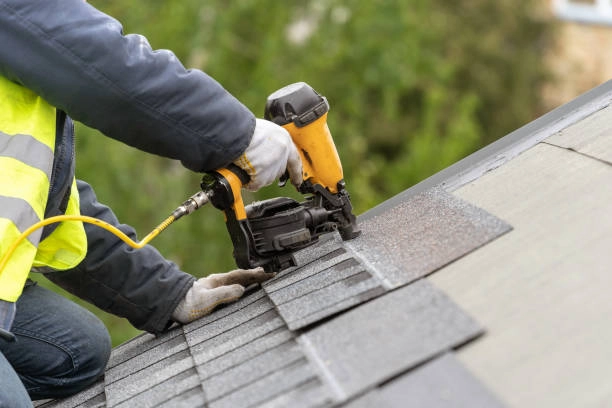
Roof Repair in Denver, Colorado
At Ernie’s Roofing, your property’s protection is our top priority. Recognizing the critical role a robust roofing system plays, our expert team delivers timely and effective roof repair services across Denver, Colorado. From minor roof leaks to comprehensive structural repairs, our skilled roofers are equipped to handle challenges of all scales.
With a deep commitment to quality, Ernie’s Roofing utilizes top-grade materials, ensuring your residential or commercial roofing withstands the test of time and the elements. Our proactive approach to maintenance identifies potential issues early, saving you time and money in the long run.
Choose Ernie’s Roofing for a seamless repair experience backed by a tradition of excellence and customer satisfaction. Your roof’s integrity is essential—let us help you maintain it. Call us now at (720) 346-7773.

